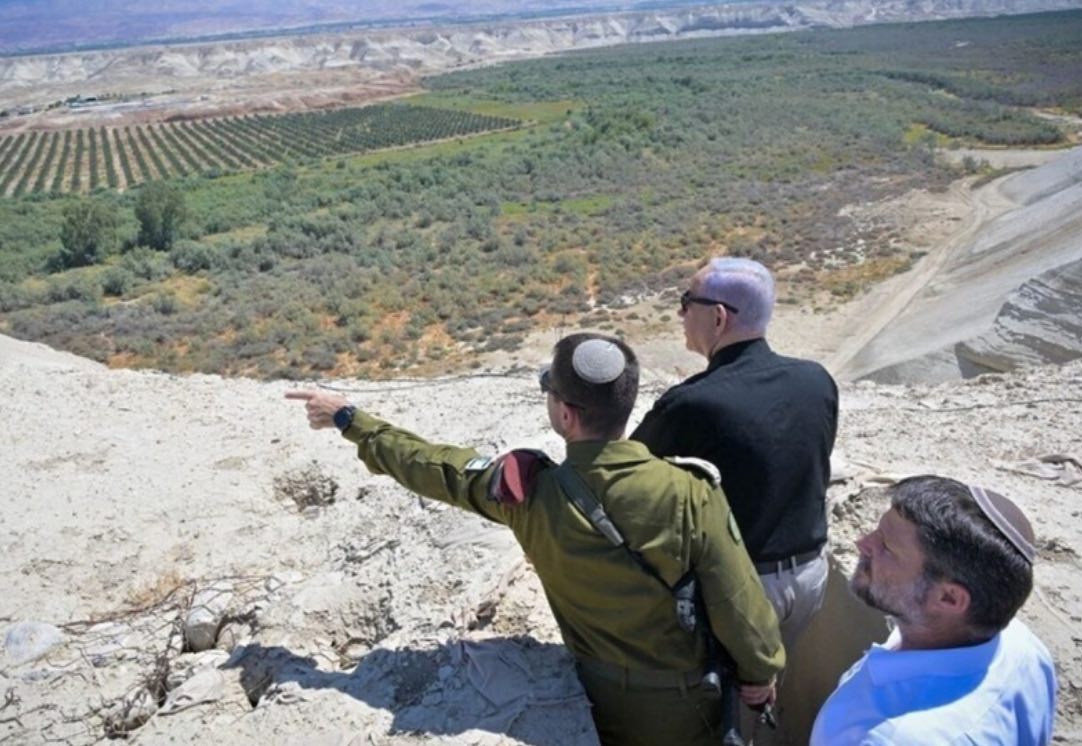Why Arab Countries are Striving for a Ceasefire
In a video released earlier this year on his official TikTok account, Israeli Prime Minister Benjamin Netanyahu showed a group of orphaned children whose soldier fathers had been killed in war visiting his office.
During this visit, Netanyahu showed the children an image of the Al-Aqsa Mosque compound, in which the mosque was removed and replaced with the Third Temple or Ezekiel’s Temple.
This image, which Netanyahu looks at every day in his office, aids in shaping the awareness and decision-making processes of the leadership, which aims to expand Israeli territory through annexation or control of the West Bank and Gaza and eliminate any possibility of establishing a Palestinian state.
Therefore, it was interesting to hear that last week, Ayman Safadi, the Jordanian Foreign Minister, emphasized that 57 Arab and Muslim countries are willing to secure Israel in exchange for the creation of a Palestinian state. Besides the Palestinian issue, Israel has inflicted significant damage across the region, including on countries that have normalized relations with Tel Aviv, fueling public unrest within them.
Nevertheless, despite the increase in Israeli settlements, unprecedented attacks on Al-Aqsa Mosque, and the lack of a political horizon, Arab countries continue to normalize relations with Israel. This could partly be based on the belief that improved relations provide Arab countries with more leverage to pressure Israel into creating a Palestinian state, but what actually happens is quite the opposite.
Netanyahu boasts about how he has managed to advance normalization with Arab countries without resolving the Palestinian issue.
Moreover, there is a deep-seated belief in Israeli political culture that Arabs only understand force. So, while the Jordanian Foreign Minister’s statements last week pointed to the deterioration of the situation and the importance of establishing stability in the region, Israel still sees itself as a villa or perhaps a fortress in the jungle.
Zionist ethics hold that living by the sword is necessary and that Arabs are fundamentally the other. A prime example is the Palestinian Authority, which, despite coordinating with Israel on security issues for decades, is still relentlessly undermined by Israel.
Contrary to Netanyahu’s statements, Israel knows that Arabs are not only not a threat but will defend Israel if needed, as they did in two Iranian missile attacks.
All of this is happening while Israel is led by someone widely perceived as a Machiavellian leader who will do anything to cling to power. Netanyahu, with grand ambitions, exploits the current conflict to relentlessly strike four Arab regions—Palestinian occupied territories, Lebanon, Syria, and Yemen.
He misleads the Arab world with promises of ceasefires, while no such plan is on the table.
Although Safadi has proposed an agreement to guarantee Israel’s security, Tel Aviv does not stop fueling chaos in the region unless Arab countries take tangible steps such as recalling ambassadors, cutting diplomatic ties, and setting red lines to exert pressure.

